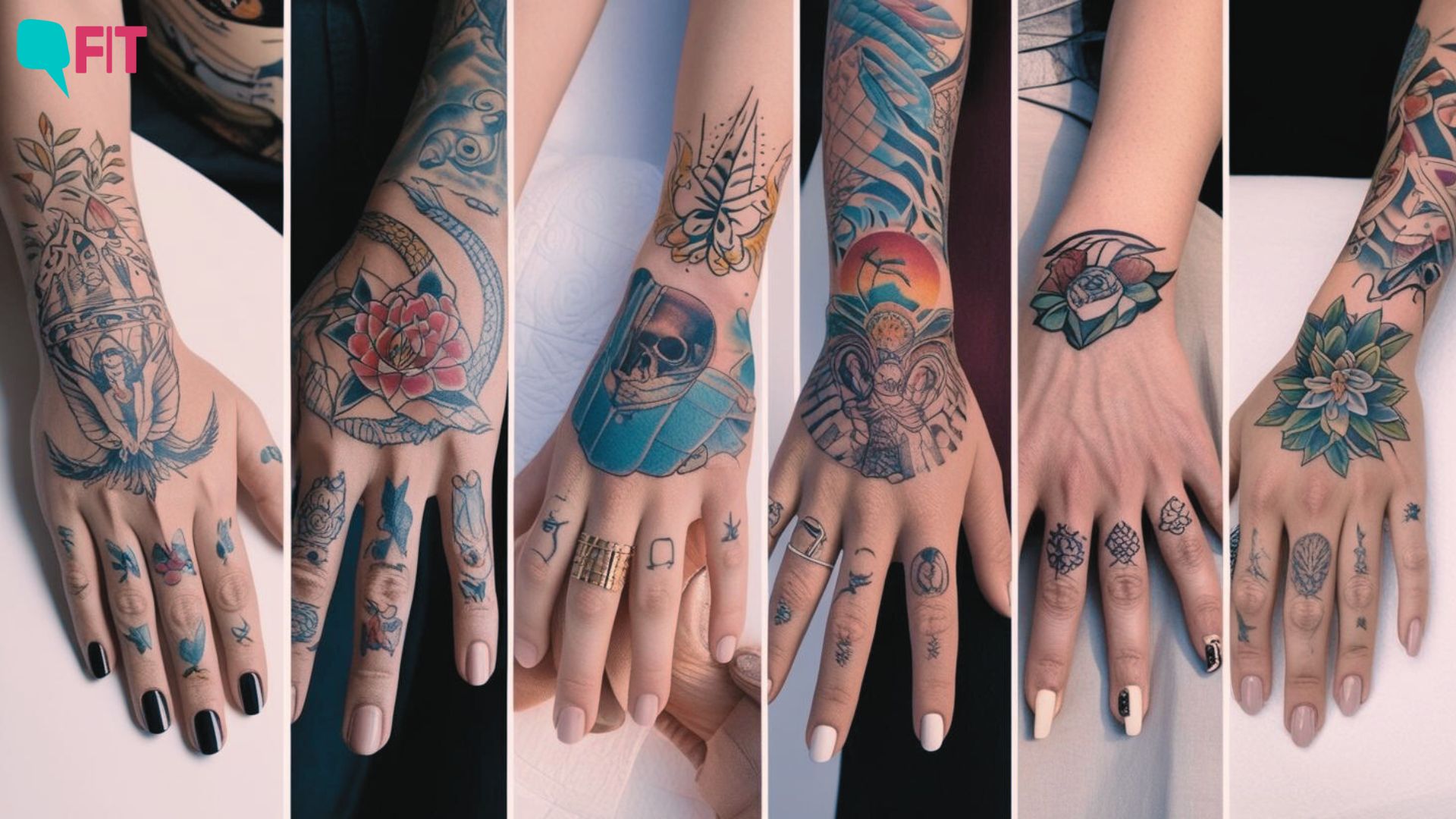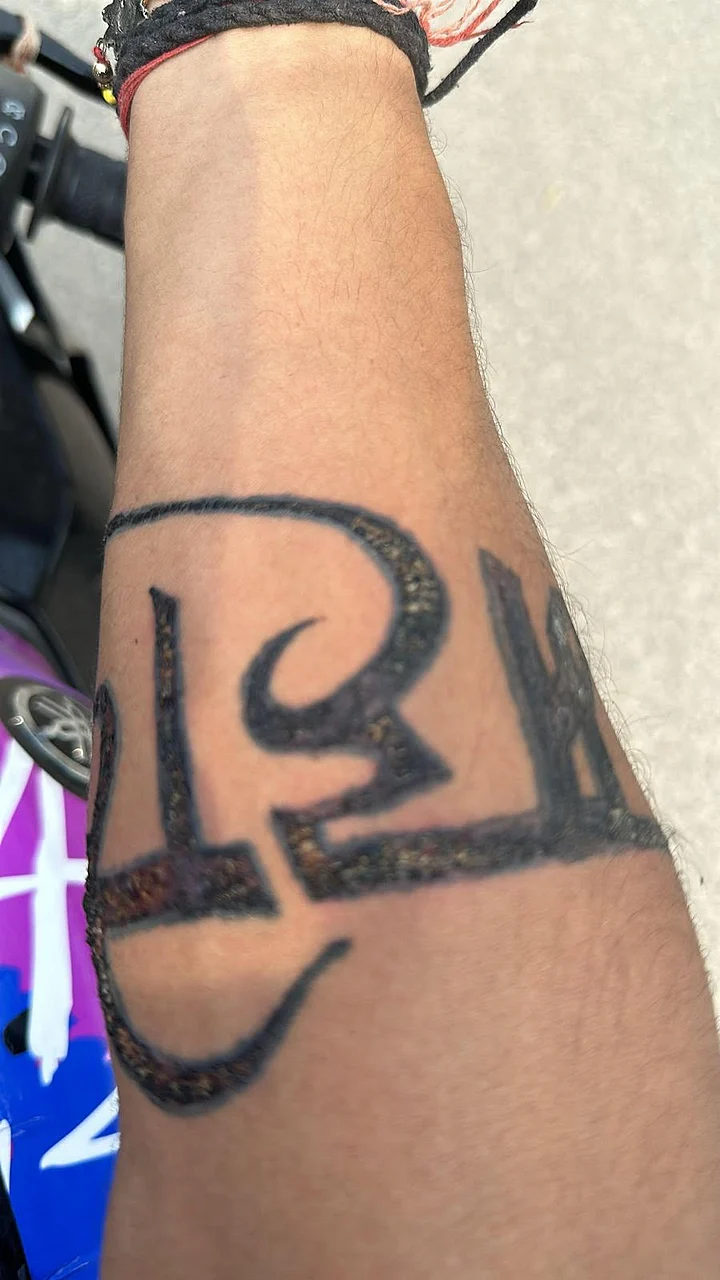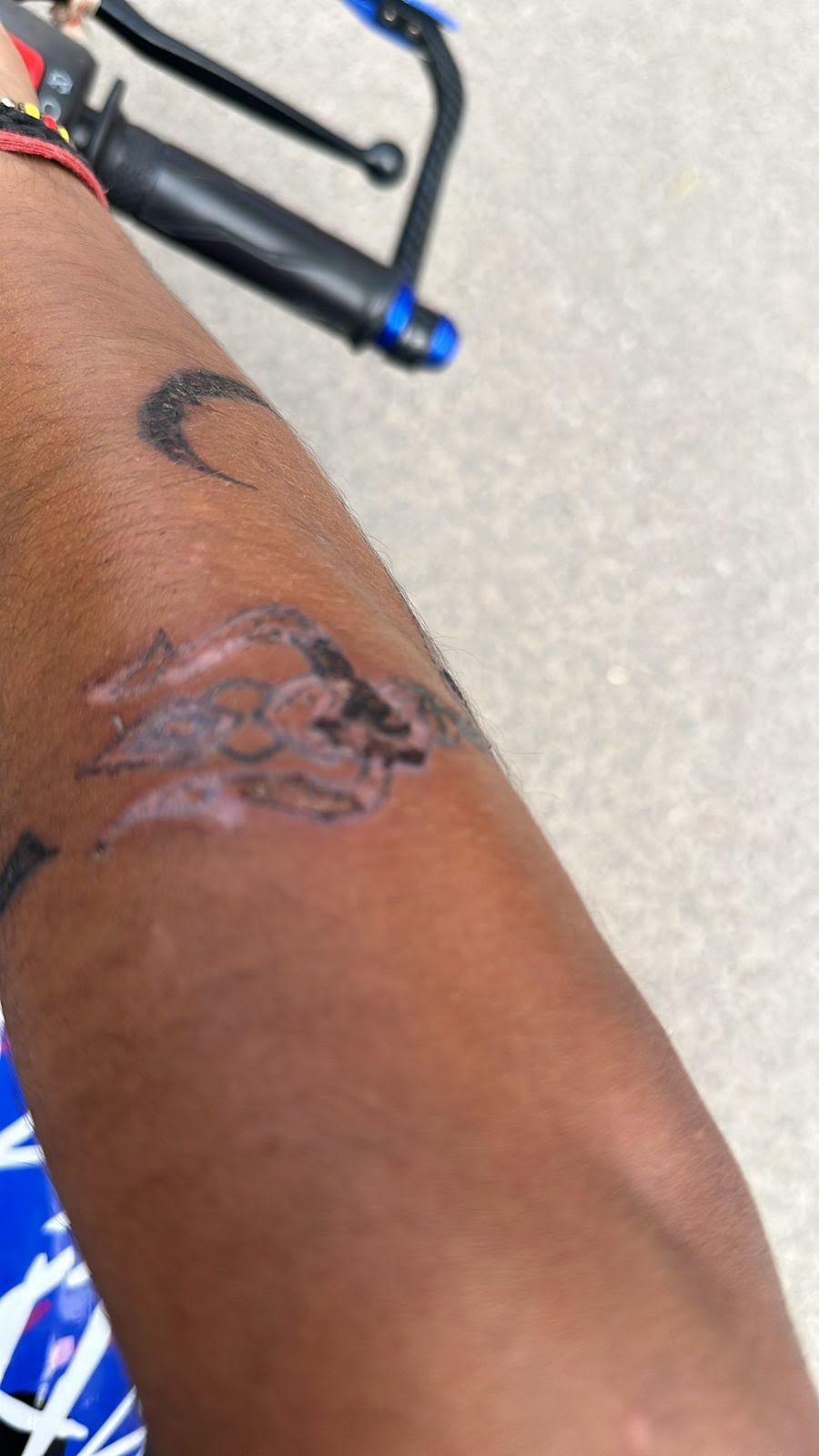While once there was a lot of fear and taboo surrounding the process of getting inked, as tattoos became more commonplace, that fear seems to have faded. But were all those concerns entirely unfounded?
Earlier this year in June, the Lancet published the first of it's kind, decade-long study that linked tattoos to lymphoma – a type of cancer.
Conducted between 2007 to 2017, with nearly 12,000 individuals in the age group of 20-60 years, the report stated that the presence of tattoos showed an increased risk of skin lymphoma.
While this may suggest a direct link between tattoos and cancer, the reality is a bit more complex than it seems.
Tattoos and Lymphoma: What the Lancet Study Found
The Lancet study followed lymphoma cases at the Swedish National Cancer Register. Lymphoma is a type of cancer that develops in the skin but is not skin cancer. While the latter develops from skin cells, the former develops inside the lymphocytes or the white blood cells. A skin lymphoma is also rarer than skin cancer.
Some of the chemicals found in tattoo ink include primary aromatic amines, polycyclic aromatic hydrocarbons, and metals, and are termed carcinogenic by the Lancet study.
Though it underlines that further research is needed to ascertain the causality of skin lymphoma and tattoos, the current findings in themselves are sufficient to sit up and take note.
Since the findings have been explored in a global setting, it is somewhat relevant to contextualise them for Indians and our brown skin.
For instance, when we speak of skin cancer, and though it can occur in anyone, irrespective of skin colour, genetic makeup and other factors, it is still more common in our Caucasian counterparts, according to this study by the American Cancer Society.
This incontrovertibly begs the question – can the same findings be applied to the instances of lymphoma in brown skin as well, especially when it comes to tattoos?
FIT got in touch with the researchers of the Lancet study to ask what the takeaway for Indians from this is. Should we not get tattoos? Is that the only way to fully safeguard ourselves against skin lymphoma? What of those of us who already have tattoos? Is removing them capable of causing more harm than good.
Christel Nielsen, Associate Professor, and research group leader, Lund University, Sweden, says, "Much of the difference in skin cancer risk between populations likely results from differences in skin characteristics and sun exposure. I don’t think that lymphoma would be equally affected by genetics (besides possibly Hodgkin’s lymphoma where there is a stronger genetic component)."
"Lymphoma is predominantly caused by mutations within the DNA, and genetics therefore do not have a direct correlation with its occurrence.”Christel Nielsen, Associate Professor, and research group leader, Lund University, Sweden
Is tattoo ink capable of causing these genetic mutations?
Research remains inconclusive on this. This also means that simply the lower instances of skin cancer in Indians as compared to their Caucasian counterparts is not a metric that can be applied to lymphomas as well, even if we cannot define the causality between tattoo ink and skin lymphoma in Indians in definite terms yet.
The co-author of the study as well as a lymphoma expert Mats Jerkeman, Division of Oncology, Department of Clinical Sciences, Lund University, Sweden, reiterates, “The risk for lymphoma is likely not dependent on skin colour,“ adding, they “found an association between tattoos and lymphoma, (but) they did not study skin cancer.“
The bottomline is that if you already have a tattoo, removing it is inconsequential vis-a-vis the Lancet findings, and you might just as well live with the inconclusive aspect of the already available research for Indian skin. Indeed time (and more medical research) shall reveal all other answers!
If you are planning to get a tattoo and the Lancet study has made you pause, the safest way is to not get it. However, if the burning desire to get inked is too overwhelming for mortal fears, there are some things to keep in mind that can mitigate the risk of health issues down the line.
Skin Cancer and Tattoos May Have No Direct Relation, But What Else to Keep in Mind
“There is no definite evidence of tattoos causing cancer”, says Megha Ahuja, a New Delhi-based tattoo artist with over six years of experience under her belt.
Instead, a tattoo-enthusiast can focus their energies on choosing a studio with proper hygiene standards, and equipment.
Ahuja shares that tattoo machines can range from Rs 1500 to several lakh rupees.
“Quality comes with price, expensive machines give good precision and may cause less trauma to skin.”Megha Ahuja
Protecting your skin right from the start might sound like a no-brainer, but this is often a much-ignored aspect of the whole process.
“People compromise for price over quality and end up messing with the ink. They should always do proper research and compare costs, years of experience of the artist, the quality of service and the products used by them.”Megha Ahuja
Blood Donation, MRI Discomfort and Other Myths/Facts About Tattoos
There is a prevalent myth about tattoos that if you have inked skin, you can never donate blood, this must mean that the blood of those who have tattoos is contaminated, right?
Dr Soni Gupta, Senior Consultant - Dermatologist, Aesthetic Physician & Hair Transplant, Max Multi Speciality Hospital, Panchsheel Park , New Delhi busts this.
“People who have tattoos can donate blood. There are a few viral markers, like HIV, HBsAg, and PHV, that we should test for before donating blood, but other than that, anyone with tattoos can donate.”Dr Soni Gupta
There’s another aspect to keep in mind – tattoos and the discomfort of MRIs.
Now, due to the presence of metals in your tattoos, and depending on how many tattoos you have, you can experience pain in varying degrees during an MRI scan.
“People with tattoos can get an MRI, but it can be painful or uncomfortable for a few days if there is metal in the tattoo dye. They might feel a little pulling sensation and pain, and may experience a burning sensation during the scan. Therefore, there should be no metal in tattoo ink. If there is, it can be uncomfortable.”Dr Soni Gupta
Getting a Tattoo 101
Tattoos can create health issues only when they do not heal properly. Some reasons behind this can include the artist not performing the procedure hygienically, or due to underlying or pre-existing medical/skin conditions, says Ahuja. She shares one of her own experiences in this context.
“I tattooed two friends, and one of them ended up with healing issues with the tattoo. The tattooed area got swollen and infected. A visit to a doctor and few tests later she found out she was allergic to any artificial pigment being injected into her skin, even though this kind of condition is very rare.”Megha Ahuja
Ahuja laments that sometimes unknown skin allergies become a cause of concern but artists get the blame.
On the topic of allergies, Dr Gupta also shares some insightful advice.
“If you are sensitive, or have a metal allergy such as nickel, and if the ink contains that metal, it can cause an immediate allergic reaction. However, such allergic reactions do not usually happen due to a tattoo later in life.”Dr Soni Gupta
So, once your tattoo has healed, you do not have to worry about it flaring up years later. Though not unheard of, such skin conditions are extremely rare.
Additionally, seasonal changes can hamper skin recovery if one is too sensitive, says Ahuja. Itching due to weather changes is normal. If you get acne or inflammation on your tattoo, sometimes common in people who take too many supplements, do not pick on it, she further mentions. If it persists, consult a dermatologist instead.
If there are still problems with your tattoo recovery, here are some points that Ahuja lists down as possible reasons:
● Not washing or cleaning plasma properly at the sight of the tattoo.
● Not following aftercare advised by the tattoo artist.
● Picking the scab while healing or itching too hard.
● The tattoo artist going too deep into the skin.
● Proper hygiene not being followed at one or more steps of the process.
“Always check the hygiene standards of the studio. All professional studios use good-quality ink. Go through the expiry date mentioned on the bottle. We have ‘vegan tattoo inks’ available in the market as well.”Megha Ahuja
Dr Soni Gupta, Senior Consultant - Dermatologist, Aesthetic Physician & Hair Transplant, Max Multi Speciality Hospital, Panchsheel Park, New Delhi, emphasises the importance of this as well and offers a few handy tips to safeguard yourself.
“If someone wants to get a tattoo done, they should check if the tattoo artist is working in a hygienic manner, using sterile equipment and needles. The second thing I would suggest is to do a patch test with the tattoo ink 48 to 72 hours before getting the tattoo.”Dr Soni Gupta
Dr Gupta adds that in case you want to be even more careful then opt for black coloured ink “because when you want to remove a tattoo with laser, black tattoos can usually be removed for up to 99 percent. The most difficult tattoo to remove is a red tattoo.”
How to Care for Tattoos You Already Have?
Once again, Ahuja offers simple but crucial steps in taking care of your tattoo.
"Body weight fluctuations, sun tanning and over-exposure are all major causes for tattoos losing their beauty and charm. We often become negligent after getting inked but that’s when the real care starts", she states.
“Moisturise your tattoo daily. Cover it while going out in the sun. Sunscreen is a must. Building muscle on or around the tattoo can also affect its shape (if geometrical design). One has to accept that ageing is normal, and just like us, our tattoos age too. They are part of your body, inviting a lifetime commitment of care.”Megha Ahuja
This is also why Ahuja suggests not getting geometrical designs or symmetry-centric tattoos around muscular parts of the body, especially for people who are into strength training or have fluctuating body weight. Also, be mindful of stretch marks.
“Because a tattoo is a permanent commitment, get something that will not hurt anyone’s sentiments or create issues while travelling. One of my clients got a Shiva with Nandi on her back. Since she was not Indian, she faced a lot of online trolling for it.”Megha Ahuja
Now, if you have a tattoo or are planning to get one, these guidelines should suffice in getting you started. What the Lancet study offered is indeed a comprehensive glimpse into skin conditions and our bodies’ relationships with anything external that we might introduce to it.
It is definitely something worth exploring further. Whether you choose to get a tattoo or not, due to health reasons or otherwise, that’s entirely your call. However, a little research will go a long way in helping you make an informed call.
(Rosheena Zehra is a published author and media professional. You can find out more about her work here.)
(At The Quint, we question everything. Play an active role in shaping our journalism by becoming a member today.)


